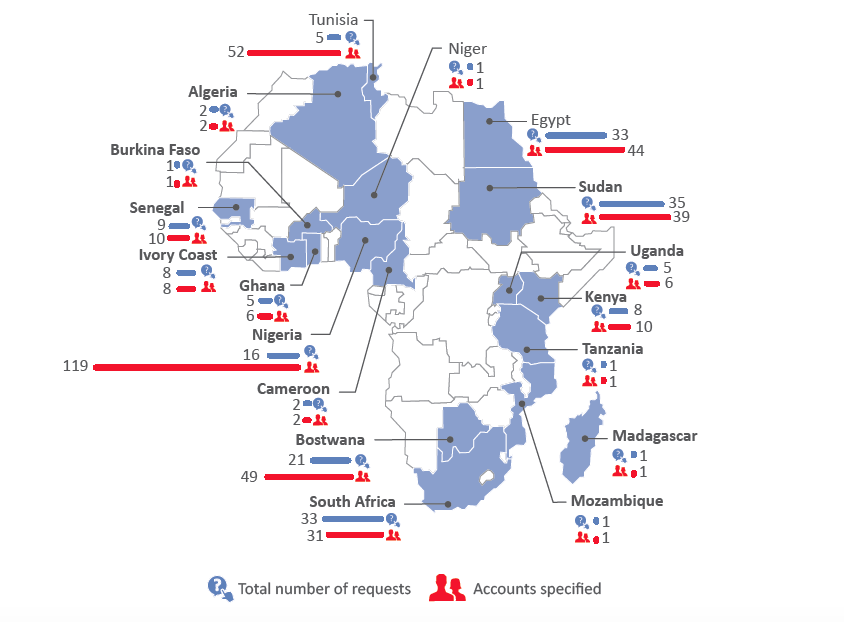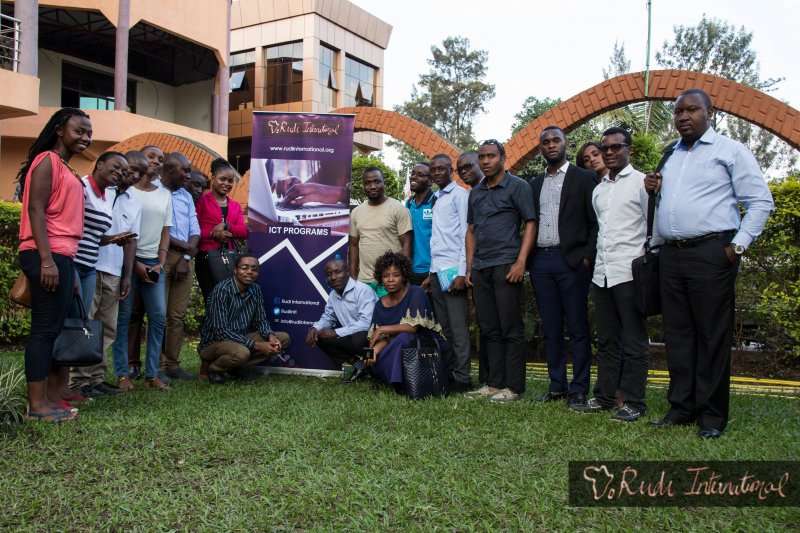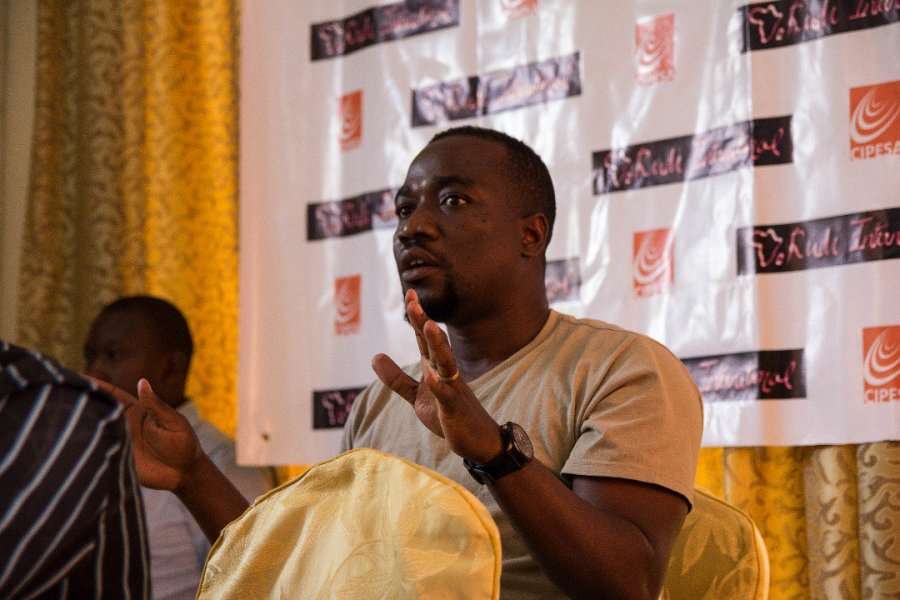Policy Brief |
The relationship between communications service providers, users and governments with regards to data protection, requests of user information and content take downs is increasingly taking centre stage in discussions around free, open and secure use of digital technologies.
In February 2017, Millicom issued its second Law Enforcement Disclosure Report. Millicom’s report is one of many by private companies aimed at promoting transparency and accountability, through periodically publishing reports detailing information on government requests for user data, content removals, and compliance with those requests.
Google is credited with being the first internet company to publish a transparency report back in 2009, followed by Twitter in 2012. Facebook and Yahoo have published reports since 2013. Vodafone and Orange were among the first telecommunications companies to publish transparency reports, both in 2014.
These reports have become vital to understanding censorship, surveillance and more importantly the commitment of service providers to protecting the privacy of their users and promoting freedom of expression online. Based on the reports alone, it remains unclear what the true extent of governments’ surveillance of citizens’ communications and censorship of content across the world is. Nonetheless, the reports indicate a growing trend among countries, including African governments, of requests for subscribers’ data and content removal.
On the social media front, from five African countries being listed by Facebook among those that requested users’ details in the first half of 2013, the number on the continent has grown to 18 as at the end of 2016. Meanwhile, requests to remove content from Google have also grown from only Libya in 2010 and 2011, to four African countries in 2016 alone. Twitter, which only received one user information request from South Sudan in 2012, has since gone on to receive requests from an additional four countries on the continent. The countries which have consistently made requests for user information to Google, Facebook and Twitter include South Africa, Nigeria, Sudan, Kenya and Egypt.
In telecommunications, figures are scanty as only four companies operating in Africa issue transparency reports – one of which, MTN, does not disclose any statistics while Vodafone’s extent of disclosure is limited due to legal provisions in some of its countries of operation that prohibit publishing of such information. Even then, user data requests from five African governments to Millicom have increased from 5,000 in 2015 to nearly 7,000 in 2016. Requests to Orange from the 20 African countries where it had operations as at the end of 2016 have tripled in the past three years – from 22,930 in 2014 to 67,718 in 2016.
In this brief, we provide a summary of the user data and content removal requests which governments in Africa have made to select internet and telecommunications companies in recent years.
Join us at the Forum on Internet Freedom in Africa 2017 (FIFAfrica17): Register Today!
Register and join those who already have set their sights on joining us at #FIFAfrica17 as we continue to advocate for an internet that is free, secure and open. We have received many session proposals and suggestions but are still open to receiving a few more. As you register, you are still welcome to add your suggestion – we’ll try our best to find a way of addressing the topics you raise. Successful session proposals will be listed on the Forum webpage on August 10, 2017.
Travel Support
Last year we received over 400 applications for travel support of which we were able to support less than one-fifth of the applicants. Our vision is to have a Forum with representation from as many countries in Africa as possible. As part of the registration process, we make room for interested participants to submit an application for travel support.
Exhibit at #FIFAfrica17
Participation in the Forum takes various forms. Some want to talk, others want to listen and some want to show what they do. We are expanding exhibition space at the Forum and are thus inviting proposals from individuals,organisations and companies who wish to showcase their work, projects and products at #FIFAfrica17. The exhibition opportunity is free but we encourage a voluntary contribution to enable us ensure that the #FIFAfrica17 experience is as insightful as it is memorable. Please follow this link and let us know your exhibition idea.
#FIFAfrica17 is co-hosted by the Collaboration on International ICT Policy for East and Southern Africa (CIPESA) and the Association for Progressive Communications (APC)
Le Parlement de la République démocratique du Congo est invité à adopter des lois qui appuient les droits des citoyens en ligne
Statement |
Les acteurs de la société civile dans la ville congolaise de Goma ont exhorté le Gouvernement de la République démocratique du Congo (RDC) à apporter des modifications à ses lois actuelles régissant les technologies de l’information et de la communication (TIC) pour les rendre favorables à la croissance de l’utilisation d’Internet, comme la vie privée en ligne, l’accès à l’information et la liberté d’expression.
Les acteurs de la société civile, y compris des journalistes, des militants des droits numériques et les blogueurs, ont également exhorté le Parlement du pays et le Ministère des TIC à offrir des moyens significatifs aux citoyens de fournir des contributions aux nouvelles lois proposées dans le secteur des télécommunications.
Le gouvernement a récemment envoyé au Parlement le projet de loi sur les télécommunications et les TIC visant à mettre à jour la loi-cadre 013/2002 sur les télécommunications, ainsi que le projet de loi sur les transactions électroniques, et une loi modifiant la loi qui a mis en place le régulateur – l’Autorité de Régulation des Postes et Télécommunications du Congo (ARPTC). Cependant, ni le Parlement ni le Ministère n’ont annoncé de possibilités pour les autres parties prenantes de faire des commentaires ou des observations sur ces projets de loi.
L’importance des consultations des parties prenantes dans les processus décisionnels en RDC a été l’une des questions qui ont émergé lors d’un atelier de formation sur les politiques et le plaidoyer autour des TIC tenu à Goma les 10 et 11 juin 2017 par Rudi International en collaboration avec Collaboration on International ICT Policy for East and Southern Africa (CIPESA). Les participants ont noté que l’exclusion des acteurs, comme ceux du secteur privé, de la société civile, etc. du processus législatif pourrait conduire à l’adoption de lois qui nuisent à l’accès et à l’utilisation de l’internet dans le pays d’Afrique centrale.
À l’heure actuelle, l’adoption des TIC en RDC fait face à plusieurs défis, y compris des coûts de données déraisonnablement élevés qui ont largement contribué au faible taux de pénétration de l’Internet de 4,2% en 2016. La loi-cadre 013/2002 sur les Télécommunications et la loi 14/2002 sur le Régulateur sont les lois primaires régissant entre autres, les communications en ligne, mais elles ne prévoient pas suffisamment de garanties au sujet des droits des citoyens à la vie privée, ni ne fournissent un environnement propice aux citoyens pour jouir du droit à la libre expression sur Internet.
En outre, ces lois contiennent des clauses vagues telles que « l’intérêt public », « perturbation de l’ordre public », « vérité ultime » et « sécurité nationale » qui créent la latitude pour des abus des lois, y compris par la censure et la surveillance. Pendant ce temps, les fournisseurs de services d’Internet et de télécommunications n’ont pas de protection contre les interférences indues de l’État, comme en témoigne l’évolution des coupures de l’Internet ces dernières années.
Les nouvelles lois proposées sont les bienvenues parce qu’elles présentent l’opportunité d’expurger des articles rétrogradés des lois existantes et de remédier aux lacunes actuelles. Cependant, les projets de loi ne reflètent pas une protection suffisante pour les droits des citoyens à la vie privée et à la liberté d’expression, et ils ne prennent pas en charge adéquatement la libre circulation de l’information en ligne. Par exemple, le projet de loi sur les Télécommunications et les TIC contient plusieurs clauses problématiques, notamment en accordant au Ministre des pouvoirs excessifs sur l’interception des communications et leur interruption. Le ministre et l’organisme de régulation renforcent également leur pouvoir face aux opérations des prestataires de services. En outre, il existe de faibles dispositions relatives à la protection des données ; le projet de loi étant dépourvu de mécanismes indépendants de surveillance, en particulier en ce qui concerne l’Etat qui fait des demandes d’informations sur les abonnés aux fournisseurs de services.
Le manque de mécanismes indépendants de surveillance pour lutter contre l’abus du pouvoir excessif par le ministre ne garantit pas que les citoyens soient protégés contre l’interception injustifiée de la communication.
Bien que l’article 175 du projet de loi sur les télécommunications et les TIC reconnaisse le droit du citoyen de demander des informations sur ses données personnelles auprès de l’État ou d’une autre entité, il n’existe pas de dispositions claires sur la manière dont ces informations peuvent être demandées ou si les détenteurs de cette information sont obligés de répondre à une demande d’information dans un délai déterminé.
La communication en ligne sécurisée est prioritaire selon les articles 116-117. Cependant, des clauses qui permettent à l’Etat d’intercepter la communication privée avec des garanties limitées sont également incluses. En outre, l’article 119 comprend une disposition pour que le Procureur général désigne un magistrat en chef qui peut demander à un agent qualifié du Ministère des TIC ou d’une entreprise de télécommunications de mettre en place des mécanismes permettant l’interception de la communication en ligne des citoyens.
Au cours de l’atelier de formation, les acteurs de la société civile ont noté que ces clauses contreviennent aux normes internationales en matière de droits de l’homme énoncées dans un certain nombre d’instruments, y compris la Déclaration universelle des droits de l’homme, la Charte africaine des droits de l’homme et des peuples et la Déclaration africaine sur les droits et les libertés de l’Internet.
En tant que tel, ils ont recommandé que:
- Il devrait y avoir une participation accrue de plus d’acteurs dans le processus de développement de la loi, ainsi que des engagements réguliers multipartites entre le gouvernement, les prestataires de services et la société civile;
- Le gouvernement, en particulier le Ministère des TIC et le Parlement, devrait diffuser largement les trois projets de loi, sensibiliser à leurs objectifs et inviter des commentaires des diverses parties prenantes;
- La législature devrait veiller à ce que les terminologies vagues, y compris la « sécurité nationale », les « illicites » et les « interférences a l’ordre public », soient bien définies avant l’adoption de ces lois ;
- Suite au fait que, dans sa forme actuelle, le projet de loi sur les télécommunications et les TIC crée des marges d’abus en donnant des pouvoirs excessifs au Régulateur et aux Ministres de l’Intérieur, de la Défense et de la Sécurité, le pouvoir judiciaire et le Parlement devraient avoir un mandat de surveillance plus large sur le Régulateur et le Ministre.
- Une loi spécifique sur la protection des données devrait être promulguée pour garantir la sauvegarde des données personnelles et de la vie privée des citoyens;
- Le projet de loi sur les Télécommunications et les TIC devrait préciser les procédures pour que les citoyens demandent de l’information de l’État et la publication de ces informations par l’État;
- Les trois lois examinées par le Parlement devraient inclure des clauses qui protègent le droit à la liberté d’expression et la libre circulation de l’information;
- Des clauses sur la non-discrimination et l’égalité devraient être introduites dans la loi proposée sur les télécommunications et les TIC, notamment en criminalisant les actions qui favorisent le cyber-harcèlement, la pornographie de vengeance et d’autres actes qui constituent une violence en ligne contre les femmes et d’autres groupes minoritaires et vulnérables.
Ces recommandations font écho à celles faites par le CIPESA dans le rapport sur l’Etat des libertés de l’Internet en RD Congo en 2016, qui a également demandé au Parlement de travailler avec d’autres parties prenantes, y compris la société civile, les internautes, le secteur privé, les universitaires et les médias pour examiner les lois et modifier celles qui limitent et restreignent les droits des citoyens à la vie privée, à la liberté d’association, d’expression et à l’accès à l’information. Le rapport a également déclaré que la rédaction et la modification des lois devraient respecter des normes internationales acceptables en matière de droits de l’homme.
DR Congo Parliament Urged to Pass Laws That Support Citizens’ Rights Online
Statement |
Civil society actors in the Congolese town of Goma have urged the Government of the Democratic Republic of Congo (DRC) to make amendments to its current laws governing Information and Communication Technologies (ICT) to make them favourable to the growth of internet usage, as well as online privacy, access to information and freedom of expression.
The civil society actors, including journalists, digital rights activists and bloggers, also urged the country’s Parliament and the Ministry for ICT to offer meaningful avenues for citizens to provide inputs to proposed new laws related to the telecommunications industry.
The Government has recently sent to the Parliament the Telecommunications and ICT Bill which is aimed at updating the Framework Law 013/2002 on Telecommunications, as well as the e-Transactions Bill, and a law amending the Act that set up the regulator – the Authority of the Post and Telecommunications of Congo (ARPTC). However, neither the Parliament, nor the Ministry, have announced opportunities for other stakeholders to make comments or submissions on these draft laws.
The importance of stakeholder consultations in Congo’s policy-making processes was among the issues that emerged during a two-day ICT policy and advocacy training workshop hosted in Goma on June 10- 11, 2017, by Rudi International and the Collaboration on International ICT Policy for East and Southern Africa (CIPESA). Participants noted that the exclusion of private sector and civil society actors from the law-making process could lead to the passing of laws that are detrimental to internet access and usage in the central African country.
Presently, ICT adoption in DRC faces several challenges including unreasonably high data costs which have largely contributed to the low internet penetration rate of 4.2% as of 2016. The Framework Law 013/2002 on Telecommunications and the Law 14/2002 on the Regulator are the primary laws governing online communication but they do not adequately provide for citizens’ rights to privacy, nor do they provide a conducive environment for citizens to enjoy the right to free expression.
Further, these laws contain vague clauses such as ‘public interest’, ‘disruption of public order’, ‘ultimate truth’, and ‘national security’ which create the latitude for unwarranted abuse of the laws including through censorship and surveillance. Meanwhile, internet and telecommunications services providers lack protection from undue state interference as has been evidenced by the evolution of communications shutdowns in recent years.
The proposed new laws are welcome because they present an opportunity to expunge retrogressive articles from the existing laws and to address the current gaps. However, the current drafts neither reflect sufficient protections for citizens’ rights to privacy and freedom of expression, nor do they adequately support the free flow of information online. For instance, the Telecommunications and ICT Bill contains several problematic clauses, including granting the minister excessive powers over the interception of communications and interruptions to communications. The minister and the regulator also maintain strong over the operations of service providers. Furthermore, there are weak provisions related to data protection, with the bill lacking independent oversight mechanisms particularly with regards to the state making user information requests to service providers.
The lack of independent oversight mechanisms to safeguard against the abuse of the excessive power by the minister fails to ensure that citizens are protected against unwarranted interception of communication.
While article 175 of the proposed ICT and Telecommunications law recognises the right of a citizen to demand for information on their personal data from the state or another entity, there are no clear provisions on how this information can be requested or whether the holders of this information are obliged to respond to an information request within a specified timeframe.
Secure online communication is prioritised in articles 116–117. However, clauses which permit the state to intercept private communication with limited safeguards are also included. Further, article 119 includes a provision for the General Prosecutor to designate a chief magistrate who can instruct any qualified agent from the Ministry of ICT or a telecommunications company to put in place mechanisms that allow for interception of citizens’ online communication.
During the training workshop, the civil society actors noted that these clauses contravene international human rights standards as set out in a number of instruments including the Universal Declaration of Human Rights, African Charter on Human and Peoples’ Rights and the African Declaration on Internet Rights and Freedoms. As such, they recommended that:
- There should be increased participation by more stakeholders in the law development process, as well as regular multi-stakeholder engagements between government, service providers and civil society;
- Government, particularly the Ministry of ICT and Parliament, should widely circulate the three bills, create awareness about their objectives and invite comments on the draft laws from various stakeholders;
- The legislature should ensure that vague terminologies in the bills, including “national security”, “illicit” and “public order interference”, are defined before they are passed;
- Since in its current form the Telecommunications and ICT bill creates room for abuse by giving excessive powers to the regulator and the Ministers of Interior, Defence and Security Affairs, the judiciary and Parliament should be granted wider oversight mandate over the regulator and the minister.
- A specific law on data protection should be enacted to ensure that citizens’ personal data and privacy are safeguarded;
- The ICT and telecommunications bill should specify the procedures for citizens to request for information from the state, and the release of such information by the state;
- The three laws under consideration by Parliament should include clauses that protect the right to freedom of expression and the free flow of information.
- Clauses on non-discrimination and equality should be introduced in the proposed law on Telecommunications and ICT specifically through criminalising actions that promote cyber bullying, cyber stalking, revenge pornography, and other acts that constitute online violence against women and other minority and vulnerable groups.
These recommendations echo those made by CIPESA in the State of Internet Freedom in DR Congo 2016 report, which also called for the Parliament to work with more stakeholders including civil society, internet users, private sector, academics and the media to review laws and amend those that limit and restrict citizens’ rights to privacy, assembly, expression and access to information. The report also stated that the drafting and amendment of laws should meet acceptable international human rights standards.
Rwanda’s Communications Regulator Dismisses Electoral Commission’s Directives on Suppressing Free Speech Online
By Ashnah Kalemera |
The Rwanda Utilities Regulatory Authority (RURA), the body that regulates telecommunication services, has dismissed a statement by the country’s electoral body regarding vetting of social media posts by candidates in the upcoming elections. This principled move by RURA needs to be commended, and just like the authority has steadfastly held service providers to their licensing obligations and protected digital technology users’ interests, RURA stands well positioned to be the champion of the free flow of information and ideas online in Rwanda.
“The National Electoral Commission (NEC) has no mandate to regulate or interrupt the use of social media by citizens,” reads RURA’s May 31 statement. The authority goes on to state that as the body in charge of communications, it has not had any discussions with NEC on the matter and to “reaffirm the right of citizens express themselves on social media and other ICT [Information and Communication Technologies] platforms, while respecting existing laws.”
The statement by RURA follows a directive by the electoral body requiring that campaign posts by candidates, including text, photographs and videos must be sent to a team of analysts prior to publishing on Facebook, Twitter, YouTube, WhatsApp, Instagram or on candidates’ websites.
“The candidates will have to send their messages to our team 24 hours before the time they expect to post them – and then they give us another 24 hours to give them feedback,” a NEC official is quoted as having told journalists. The commission head stated that candidates risked having their social media accounts blocked if they failed to comply with the instructions. According to officials, NEC’s directive was “not censorship”, but rather, aimed at ensuring that “messages posted on social media are not poisoning people.”
The electoral body’s move deserves condemnation for infringing on free speech and aiming to curtail the free flow of information and opinion in the lead up to presidential elections scheduled for August 2017. Article 38 of the Rwanda constitution guarantees freedom of the press, of expression and of access to information. The Media Law of 2013 further extends these rights to the media, including online platforms, as provided for under Article 19.
Whereas these rights need to be respected at all times, it is especially critical to uphold them at election times to enable politicians easily reach out to voters and for citizens to have ample access to competing ideas so as to make informed choices of who to vote for as their leaders. This is why RURA’s dismissal of the electoral body’s overtures to curtail free expression online is particularly welcome, and yet there is need to work on other fronts to ensure that the country’s laws, and the practices of its institutions and leaders, promote free expression online.
Presently, there are gaps in laws such as the 2013 Media Law, the Penal Code, and the law on interception of communications which pose a threat to the online operations of media and civil society. Over the years numerous blogs and websites with content deemed critical of the state have been blocked Recent years have also seen some online publishers being arrested and charged, with some fleeing into exile. See 2017 report on Safeguarding Civil Society: Assessing Internet Freedom and Digital Resilience of Civil Society in East Africa.
Nonetheless, RURA’s statement is a positive development in the country that has put ICT at the forefront of its socio-economic development. As of December 2016, Rwanda had a mobile phone penetration rate of 79%, while internet penetration stood at 37%, according to RURA’s 4th quarter 2016 report.
In October 2015, Rwanda launched its ICT Master Plan – Vision 2020. Among the priority areas is improved ICT access especially via mobile. Meanwhile, Rwanda’s Universal Service Fund, which is aimed at extending connectivity to rural and underserved communities, is funded by up to 2% levy of operator turnover.
Meanwhile, the RURA actively enforces operator licensing requirements and regulations, and issues notices and penalties for non compliance with quality of service obligations. In June 2016 notices to MTN Rwanda and Airtel Rwanda, the operators were ordered to comply with obligations within 15 calendar days and submit to the authority short term implementation reports and in the longer term, implementation plans. The notice to MTN also stipulated a penalty of approx. USD 6,300 per day for “major network outage and service degradation.”
To fully realise the benefits of these initiatives, citizens need to be free to express themselves online and to have trust in using online tools and platforms without fear for their privacy and safety.
Established under the 2001 law governing telecommunications, RURA’s mandate was extended under a 2013 amendment to include “telecommunications, information technology, broadcasting and converging electronic technologies including the Internet and any other information and communication technology.”





